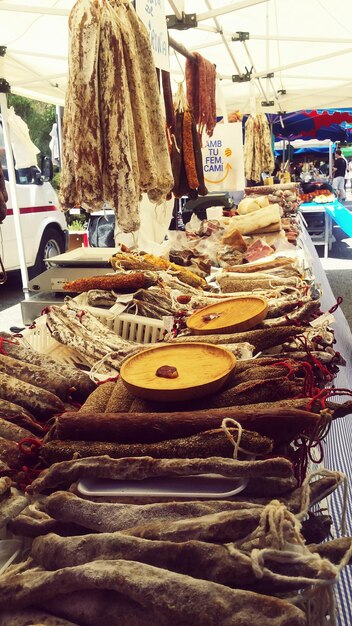The Smart Traveler’s Guide: Avoiding Tourist Traps in 2025

The Smart Traveler’s Guide to Avoiding Tourist Traps (2025 Edition) equips you with strategies to identify and bypass common tourist traps, ensuring an authentic and enriching travel experience.
Planning a trip in 2025? Want to make sure you experience the real culture and avoid overpriced, underwhelming attractions? This The Smart Traveler’s Guide to Avoiding Tourist Traps (2025 Edition) is your essential resource for navigating the world like a local, not a tourist.
Understanding Tourist Traps
Tourist traps are everywhere, designed to lure unsuspecting visitors with promises of unique experiences, only to deliver disappointment and drain their wallets. Recognizing these traps is the first step toward a more authentic and enjoyable trip.
They often come in the form of attractions, restaurants, or shops that capitalize on their proximity to popular landmarks or historical sites. These establishments typically offer inflated prices, subpar quality, and a generic, uninspired experience.
Common Characteristics of Tourist Traps
Tourist traps share several common characteristics that can help savvy travelers identify and avoid them. Look out for these red flags:
- Prime Locations: Situated near major attractions, making them easily accessible.
- Aggressive Marketing: Employing pushy salespeople and eye-catching signs.
- Inflated Prices: Charging significantly more than similar establishments elsewhere.
- Low Quality Goods/Services: Offering generic souvenirs and mediocre food.

By understanding these characteristics, you can become more adept at spotting tourist traps and making more informed choices about where to spend your time and money. Opting for experiences that resonate with local culture will undoubtedly make your travels more memorable.
Researching Your Destination
Thorough research is paramount to avoiding tourist traps. Before you even book your flights or accommodation, take the time to learn about your destination from reliable sources.
This preparation allows you to identify authentic experiences and avoid those heavily marketed towards tourists. By doing your homework, you’ll be more likely to have a genuine and fulfilling travel experience.
Utilizing Online Resources
The internet is a powerful tool for researching your destination and uncovering hidden gems. Use it wisely to gather valuable insights and tips.
- Travel Blogs: Read blogs written by experienced travelers who share their firsthand experiences and recommendations.
- Online Forums: Engage in travel forums to ask questions and get advice from locals and fellow travelers.
- Review Sites: Check reviews on sites like TripAdvisor or Yelp to gauge the quality and authenticity of various establishments.
Consulting multiple sources will provide a well-rounded perspective and help you make informed decisions. Cross-referencing information will also alert you to potential tourist traps and scams that you should be aware of.
Embracing Local Culture
Immersing yourself in the local culture is one of the best ways to avoid tourist traps and have a more authentic travel experience. Instead of sticking to the well-trodden tourist paths, venture off the beaten track and explore the hidden corners of your destination.
This approach not only allows you to discover unique and exciting experiences but also fosters a deeper understanding and appreciation of the local way of life. Embrace the unexpected and be open to new experiences.
Dining Like a Local
One of the easiest ways to connect with local culture is through food. Skip the touristy restaurants and venture into neighborhoods where locals eat.
Look for family-run establishments, street food stalls, and markets offering traditional dishes. These places are often more affordable and offer a more authentic culinary experience.
Supporting Local Businesses
Instead of buying souvenirs from chain stores or tourist shops, support local artisans and businesses. Look for local markets, craft fairs, and independent shops selling handmade goods.
- Artisanal Crafts: Purchase unique, locally made items that reflect the culture and traditions of the area.
- Local Markets: Explore bustling markets where you can find fresh produce, local delicacies, and handcrafted goods.
- Independent Shops: Discover small, independent shops offering a curated selection of local products.
By supporting local businesses, you’re not only getting a more authentic souvenir but also contributing to the local economy and supporting the community.
Navigating Transportation Wisely
Transportation can be a significant expense when traveling, and tourist traps often exploit this by offering overpriced taxi services or shuttle buses. Learning how to navigate transportation wisely can save you money and hassle.
Researching the local transportation options and familiarizing yourself with the public transit system is key. Consider alternatives to taxis and private shuttles, such as buses, trains, or ride-sharing services.
Utilizing Public Transportation
Public transportation is often the most affordable and efficient way to get around a city. Familiarize yourself with the bus and train routes, and consider purchasing a multi-day pass for unlimited travel.
- City Buses: Buses are a cost-effective way to explore different neighborhoods and landmarks.
- Subway Systems: Subways are a fast and efficient way to travel within major cities.
- Local Trains: Trains can connect you to nearby towns and attractions, offering a scenic and affordable travel option.

By using public transportation, you can avoid overpriced taxi fares and experience the city like a local. You may even discover hidden gems along the way.
Leveraging Technology
In the digital age, technology can be a powerful tool for avoiding tourist traps and enhancing your travel experience. There are countless apps and online resources that can help you navigate unfamiliar places, find local deals, and connect with other travelers.
Take advantage of these resources to plan your itinerary, book accommodations, and find authentic experiences. Technology can empower you to travel smarter and avoid common pitfalls.
Useful Travel Apps
Numerous travel apps can help you avoid tourist traps and have a more enjoyable trip. Here are a few popular options:
By utilizing these travel apps, you can access real-time information, connect with locals, and discover hidden gems that you might otherwise miss.
Staying Safe and Aware
While tourist traps are often harmless, some can be downright dangerous. Pickpockets, scams, and other forms of petty crime are common in tourist areas. Staying safe and aware of your surroundings is essential for a worry-free trip.
Be vigilant, trust your instincts, and take precautions to protect your belongings. A little awareness can go a long way in preventing unpleasant experiences.
Avoiding Common Scams
Tourist scams come in various forms, from fake tour guides to rigged games. Be aware of common scams in your destination and learn how to avoid them.
- Fake Police Officers: Be wary of individuals posing as police officers who demand to see your passport or wallet.
- Overpriced Taxis: Always negotiate the fare before getting into a taxi, or use a ride-sharing app.
- “Free” Gifts: Be cautious of individuals offering you “free” gifts, as they may demand payment later.
By being aware of these common scams, you can avoid falling victim to them and protect your money and belongings. Trust your gut and don’t be afraid to walk away from suspicious situations.
| Key Point | Brief Description |
|---|---|
| 🗺️ Research Destinations | Understand local culture & potential traps before you go. |
| 🍽️ Eat Like a Local | Choose local eateries over tourist-focused restaurants. |
| 📱 Use Travel Apps | Leverage tech for navigation, deals, and local tips. |
| 🚖 Smart Transport | Opt for public transport or reliable ride-sharing instead of tourist taxis. |
FAQ
▼
A tourist trap is an attraction, restaurant, or shop designed to exploit tourists, often offering overpriced, low-quality goods or services and an inauthentic experience. They capitalize on proximity to popular landmarks.
▼
Use travel blogs, online forums, and review sites like TripAdvisor or Yelp. Gather information from multiple sources and look for firsthand experiences and recommendations from other travelers.
▼
Common signs include prime locations near major attractions, aggressive marketing tactics, inflated prices compared to similar establishments, and low-quality goods or services that lack authenticity.
▼
Eat at family-run restaurants and street food stalls, shop at local markets and independent stores selling handmade goods, and attend local events and festivals to experience traditions firsthand.
▼
Consider Citymapper for navigation, Google Translate for communication, and local recommendation apps to find hidden gems. These tools aid you in making informed decisions and discovering authentic experiences!
Conclusion
By following this Smart Traveler’s Guide to Avoiding Tourist Traps (2025 Edition), you’ll be will equiped to navigate your next adventure with confidence, ensuring that your travel experiences are authentic, enriching, and truly unforgettable. Happy travels!





